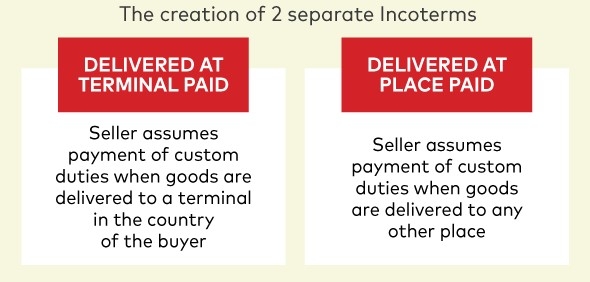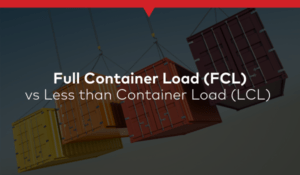Updates to Incoterms
What are Incoterms rules?
“Incoterms®” is an acronym for International Commercial Terms. The Incoterms® rules were developed by the International Chamber of Commerce (ICC) to facilitate international trade. Serving as a guide from filing a purchase order to packing and labeling a shipment for freight transport, ICC’s Incoterms® rules are essential to any individual involved in the import and export of global trade on a daily basis.
The Incoterms® were first introduced in 1936 and have been revised in 1957, 1967, 1976, 1980, 2000 and 2010 to accommodate the evolving global trade economy. In short, Incoterms®:
- Facilitate the smooth conduct of international trade
- Eliminate differences in the interpretation of delivery conditions
- Provide clear and practical terms which define the respective rights and obligations of buyers and sellers in both national and international commercial transactions
Introducing Incoterms 2020
While celebrating its centenary year, the ICC announced that Incoterms® 2020 will be released in September 2019 and officially come into effect on 1st January 2020. However, all parties involved should use this opportunity to review their existing contracts and delivery terms to ensure they are being used correctly.
New changes
What we know with Incoterms® 2020 is that there will be, as Emily O’Conner, Senior Policy Manager ICC says, “a general focus in making the rules easier to understand and use”. Here is a brief run-down on what changes to expect:
2 Incoterms based in DDP
1. Delivered at Terminal paid (DTP) – when goods are delivered to a terminal in the country of the buyer, the seller assumes payment of custom duties.
2. Delivered at Place Paid (DPP) – when goods are delivered at any place other, the seller assumes payment of the custom duties

Removal of Incoterms FAS
Free Alongside Ship (FAS) is an Incoterm that is used rarely; only for some commodities such as minerals and cereals, and hardly contributes to Free Carrier Alongside (FCA). In light of this, ICC is considering removing it altogether.
Unfold FCA in 2 Incoterms
Close to 40% of international trade operations are carried out as FCA due to its versatility and flexibility of the delivery of goods in different places such as the seller’s address, port or airport. The ICC is looking at the possibility of creating two Incoterms FCA – one for terrestrial delivery and another for maritime delivery.
Creation of new Incoterm: CNI
A new Incoterm® – Cost and Insurance (CNI) will be introduced. It would be an ‘arrival Incoterm’, where the risk of transport would be transmitted from seller to buyer at the port of departure. With this change, sellers will be responsible for taking out insurance, while buyers bear the risk and costs of carriage.

What should you take note of?
• Familiarize yourselves with the correct application of rules. Misuse of rules in international contracts can lead to confusion and delays in resolving dispute could even incur costs.
• Continue to assess delivery terms in your contracts. You may unknowingly become contractually bound to bear additional costs due to tariff impositions, trade sanctions or increased custom formalities.
• Take care when referring to ‘terms latest version’ in your contracts, as a revised version will take effect from 1 January 2020 and could potentially change how the delivery term is to be explained.
Conclusion
Questions?
We’re happy to help! Fill in the form below and we’ll get back to you shortly.






